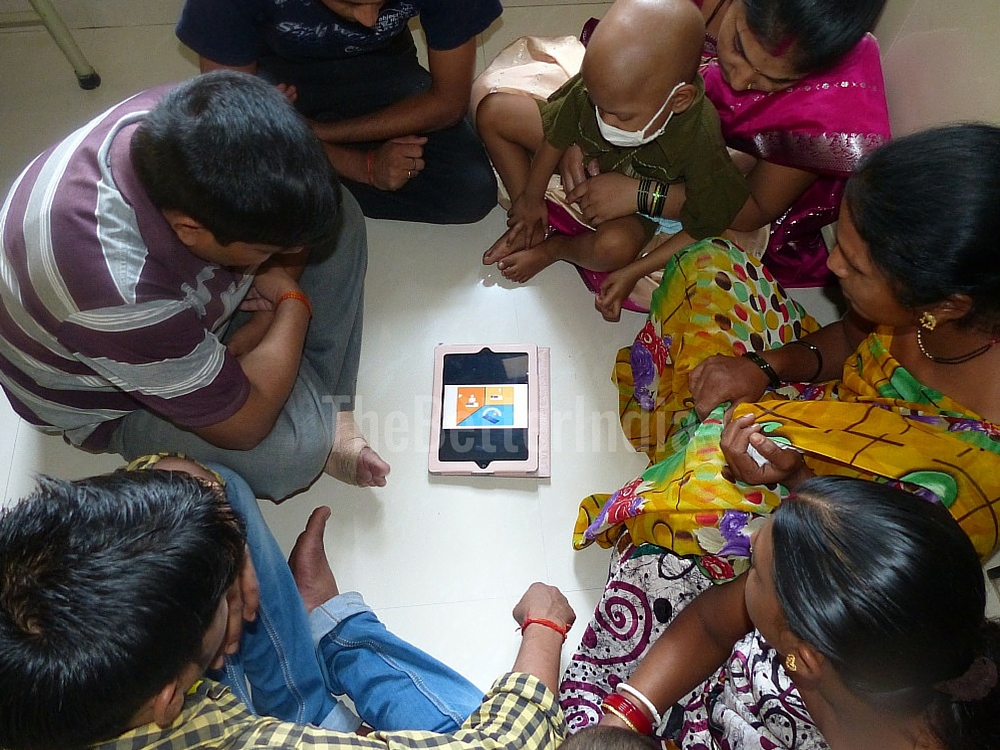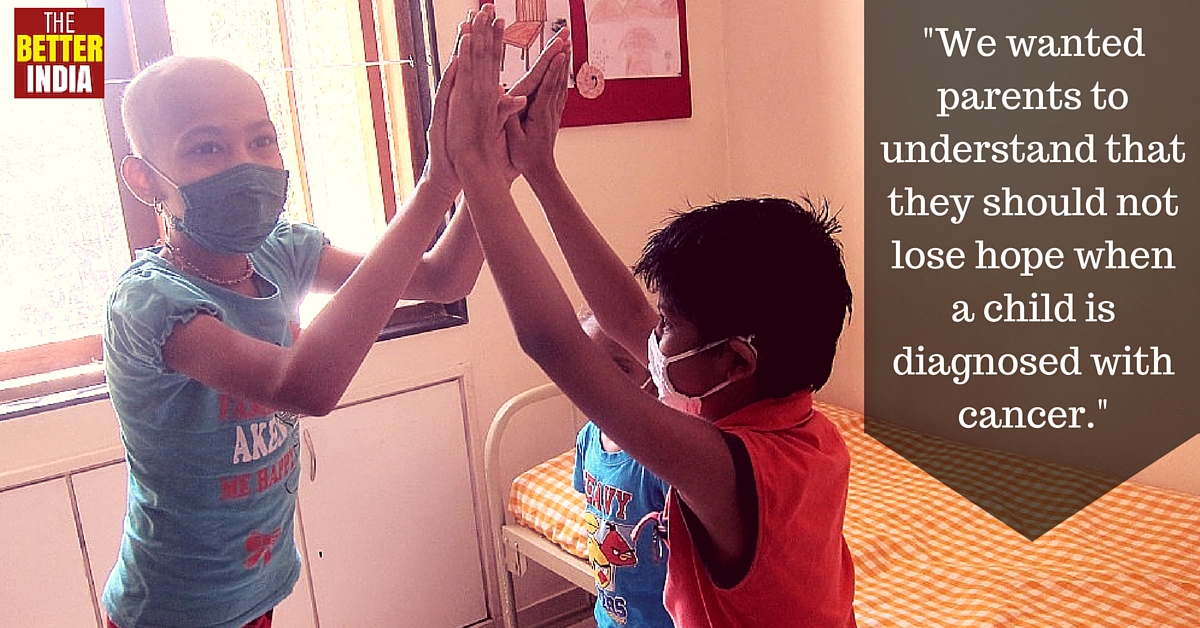People at St. Jude India Child Care Centres for low cost cancer treatment of children have come up with a unique mobile app called St. Jude Child. It helps parents understand the disease and gives them hope even after their child is diagnosed with cancer. This is how it works.
What is cancer? How does it develop? What does cancer care for children look like? How can a parent or guardian help a child suffering from cancer? How should one talk to a child about the disease? People can now find answers to important questions like these and prepare themselves with the help of a mobile app called St. Jude Child.
Developed by St. Jude India Child Care Centres, this android app is meant to provide information on cancer care for children.

“We wanted parents to understand that they should not lose hope when a child is diagnosed with cancer. They shouldn’t be saying that nothing can be done about it. The knowledge provided in this app helps empower people to take the right decisions and choose a course of treatment for a child. Parents come to know that support is available for them and that the disease itself is highly curable when associated with children. They are also informed about the ways in which they can proactively take care of the child,” says Usha Banerji, CEO of St. Jude India Child Care Centres.
The android app consists of an animated video in four languages – English, Hindi, Marathi and Bengali. The video explains everything – right from what is cancer and how it develops, to the side effects of cancer treatment and how parents should remain hopeful during the treatment.
Additionally, the app also has a pictorial book called A Parent’s Guide to Childhood Cancer, which is available in a PDF format and represents all this information in the written form.
The first St. Jude India Child Care Centre was founded in Mumbai 10 years ago. The founders, Nihal Kaviratne and his wife Shyama Kaviratne had returned to India after Nihal retired from Unilever.
They wanted to continue working and it was around the same time that Nihal discovered a very sad reality at the Tata Memorial Hospital (TMH) located in Parel. He found that rural patients, who come for treatment to cities like Mumbai, do not have a proper place to stay. And because cancer treatment usually takes a lot of time, most of these people can’t afford to rent a place for so long.
“In the absence of a proper place to stay, it is very easy for children suffering from cancer to pick up infections during their treatment. What happened then was that after the doctors treated these children, they would return to the pavements, pick up an infection, be re-admitted for the infection, and this would affect the course of the on-going treatment. This is a vicious cycle that usually demotivates both doctors and patients. Many patients used to abandon their treatment midway just because they did not want to live like this, without a proper place to stay,” says Usha.
Nihal discussed this problem with the doctors and the first centre was set up with eight families near TMH.
It provided holistic support to the patients free-of-charge, including nutrition, transportation to the hospital, as well as education and recreation support for the children.
“The doctors could see an immediate difference. The families seemed to be less stressed, the children were returning to the hospital, they seemed more in control – they were no longer the lost people who had come from villages and didn’t have any clue about how to proceed,” says Usha.
Today, St. Jude has 18 centres in Mumbai, Delhi, Kolkata, Hyderabad, and Jaipur, and they have worked with more than 7,000 children.
Usha says that childhood cancers are highly curable and in 70-80 % cases the children can lead a healthy life if provided with the proper treatment and care.
But the problem is that many people are unaware about the steps they should take once the child is diagnosed with the disease.
About three years ago, when the team at St. Jude was deeply involved in discussions around this issue, a 19-year-old girl, Ayesha Mangaldas, got together with the doctors at TMH and produced a beautiful pictorial book collating all the information related to cancer care for children. Ayesha’s parents are volunteers with St. Jude and she grew up understanding the kind of work they had been doing to help patients. She participated in the Mumbai marathon to raise funds for producing the book and also got it translated into four languages. The book was shared with patients at TMH and it soon became very popular among them.
To reach out to families that could not read, another young student, Amaya Mangaldas created an animated video named ‘What is cancer?’ This video simplifies complex medical information and makes it accessible to everyone in the four languages. It also addresses the issue of social stigma in cancer patients.
“However, the information was available only to those patients who were actually present at the hospital. What about those across India who can largely benefit from this information? That was the thought with which we put the videos and the book together, and made it into an app,” says Usha.
St Jude Child app has been downloaded about 500 times till now and the centre has received a lot of positive feedback about how it is helping patients and their families in the long run.
“People like the app because a lot of things have been explained in it in a way that makes them easily understand the disease. And also because they can read it at their own pace and can also keep going back to the information whenever they want,” concludes Usha.
You can download the app here.
Like this story? Or have something to share? Write to us: contact@thebetterindia.com, or connect with us on Facebook and Twitter (@thebetterindia).
If you found our stories insightful, informative, or even just enjoyable, we invite you to consider making a voluntary payment to support the work we do at The Better India. Your contribution helps us continue producing quality content that educates, inspires, and drives positive change.
Choose one of the payment options below for your contribution-
By paying for the stories you value, you directly contribute to sustaining our efforts focused on making a difference in the world. Together, let's ensure that impactful stories continue to be told and shared, enriching lives and communities alike.
Thank you for your support. Here are some frequently asked questions you might find helpful to know why you are contributing?

